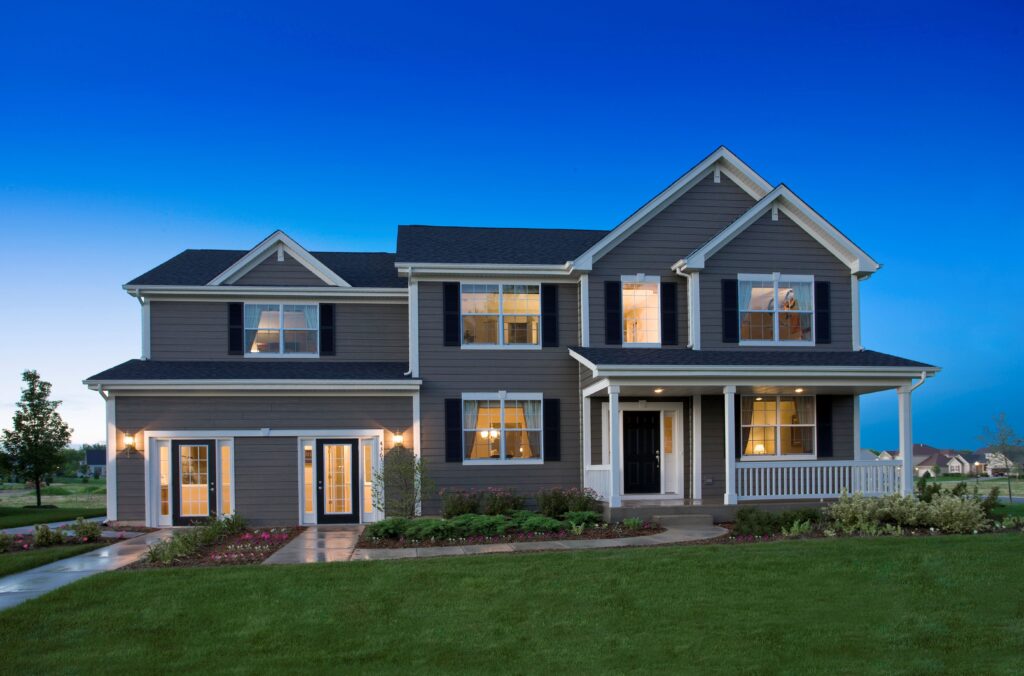A Guide to Investment and Lifestyle Flexibility
Multi-family homes are gaining popularity among both real estate investors and families seeking adaptable living options. Defined as a property designed to accommodate multiple families in separate units, multi-family homes can range from duplexes to apartment-style buildings. Whether you’re a seasoned investor or a first-time buyer, purchasing a multi-family home offers unique benefits and challenges that are worth exploring.

Benefits of Owning a Multi-Family Home
Income Potential:
Multi-family properties provide a valuable source of rental income. Owners can live in one unit and rent out the others, helping cover mortgage payments, property taxes, and maintenance expenses. This “house hacking” approach allows for a steady income stream, making multi-family homes a smart investment for those aiming to generate passive income.
Tax Advantages:
The tax benefits of multi-family homes are often a key incentive for buyers. Owners may deduct expenses related to property maintenance, depreciation, and mortgage interest. Additionally, rental income is typically taxed at a favourable rate, potentially leading to a higher return on investment (ROI).
Portfolio Diversification:
For investors, multi-family homes provide an opportunity to diversify their real estate portfolio. By investing in properties with multiple tenants, they mitigate risk because rental income doesn’t solely rely on a single tenant. If one unit is vacant, income from other units can help stabilise cash flow.
Flexibility in Living Arrangements
For families, multi-family homes offer versatility. Some buyers use these properties to accommodate extended family, providing a multi-generational living setup while still maintaining privacy. Others might consider multi-family homes a valuable asset for future needs, such as accommodating ageing parents or adult children.
Considerations When Purchasing a Multi-Family Home
Higher initial costs:
Multi-family homes often come with a higher price tag than single-family homes. Buyers should be prepared for larger down payments, higher mortgage rates, and increased repair and maintenance costs. It’s essential to budget for these expenses to ensure a positive cash flow.
Maintenance and Management Needs:
Managing a multi-family property requires effort, particularly if you plan to rent out multiple units. Hiring a property management company can be beneficial but adds to the cost. Self-management may save money but requires time and energy to address tenant concerns, property maintenance, and legal matters.
Location and Market Demand:
Location plays a crucial role in the success of a multi-family investment. High-demand areas with good schools, public transportation, and amenities attract more tenants, leading to higher occupancy rates. Researching local market trends and rental demands will help ensure your property remains appealing.
Financing Options for Multi-Family Homes
Financing a multi-family home differs slightly from purchasing a single-family residence. While conventional loans are available, many investors opt for FHA loans, which require a smaller down payment if the owner occupies one of the units. Additionally, VA loans may be available for qualifying veterans, offering favourable terms and low down payments.
Is a Multi-Family Home Right for You?
Multi-family homes represent a substantial investment that offers both lifestyle flexibility and potential financial rewards. However, they require a thoughtful approach to budgeting, management, and tenant relations. If you’re ready for the responsibilities that come with managing multiple units, a multi-family home can be a profitable and sustainable venture.
Pingback: duplex house for sale in Coimbatore - Raarya Realestate
Pingback: Buildings for sale in coimbatore